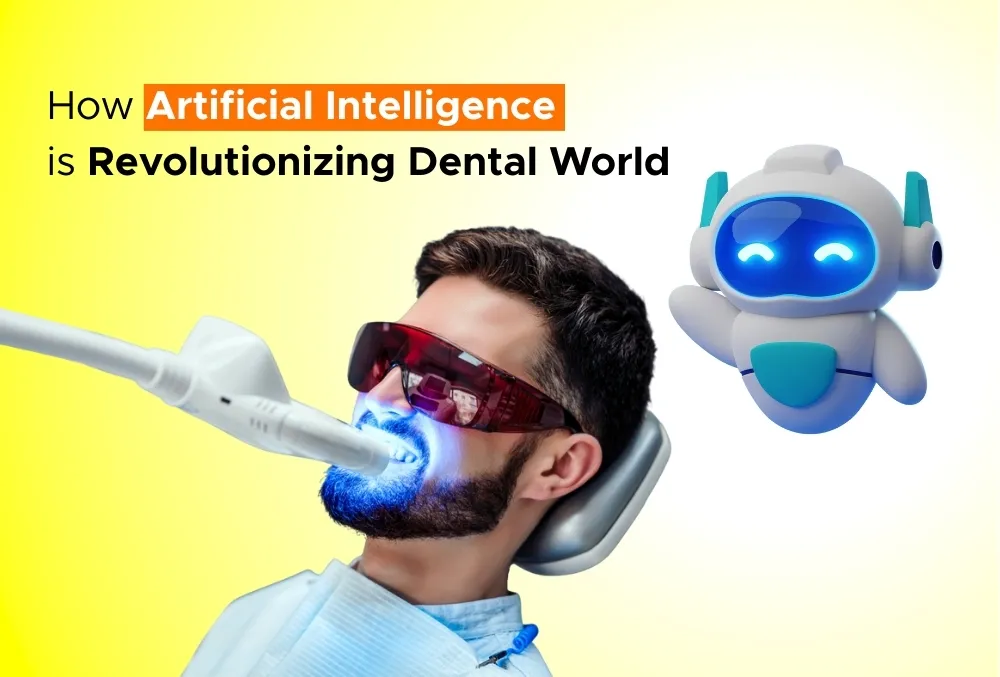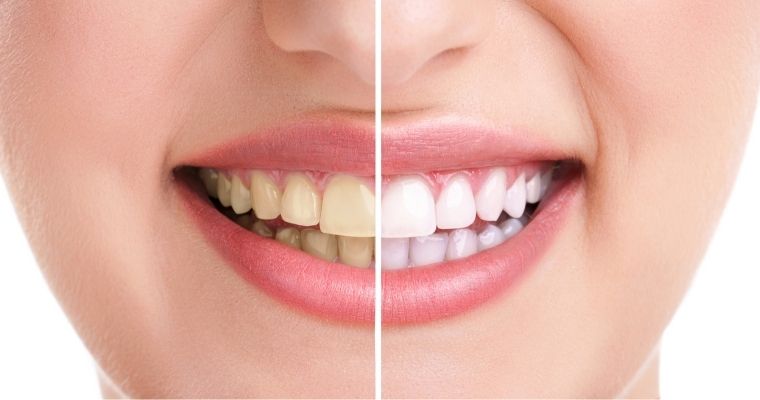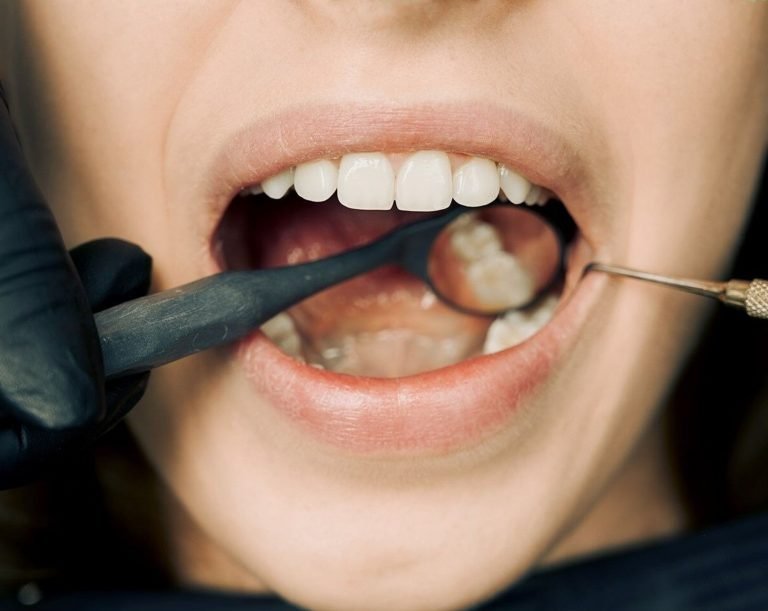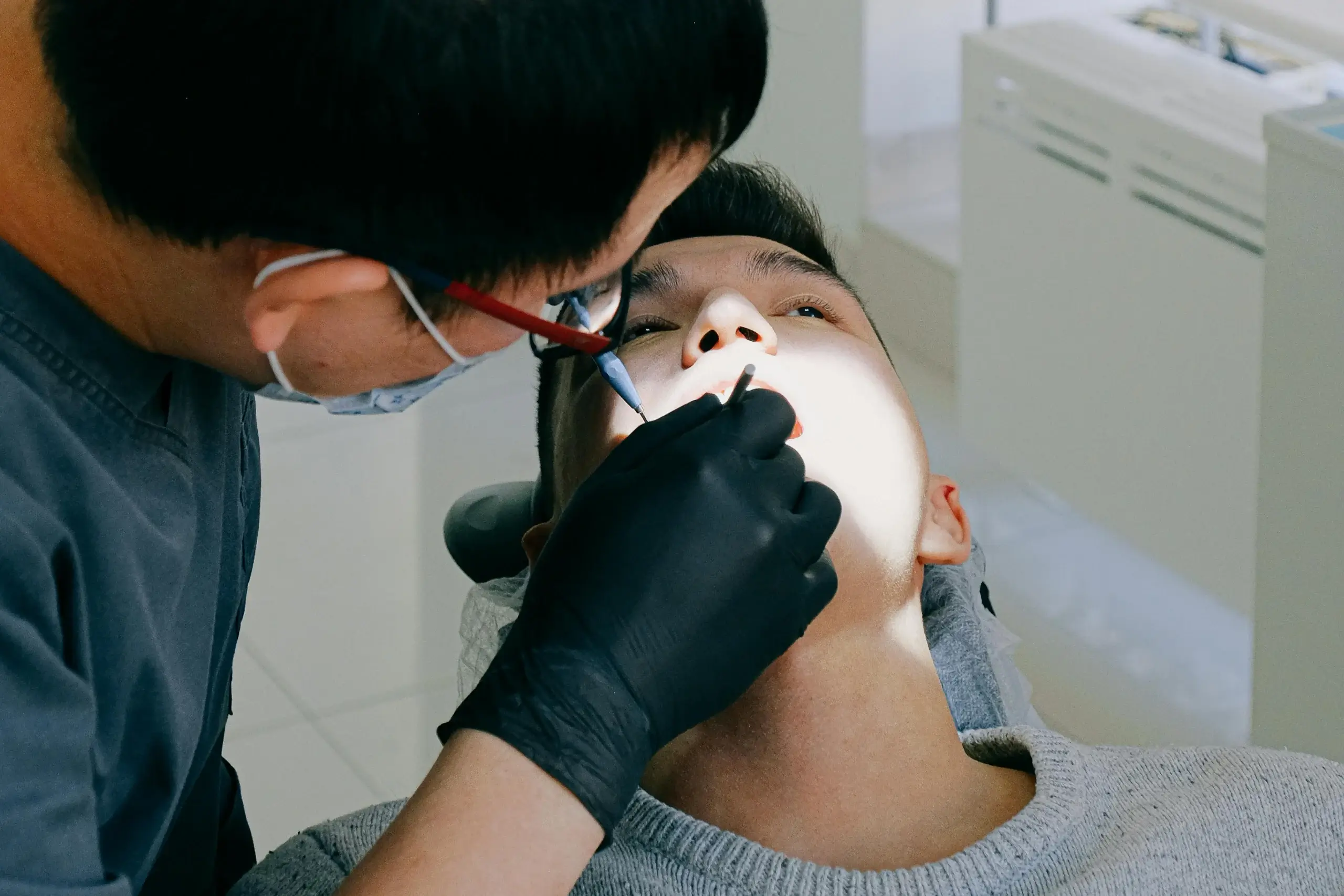Your cart is currently empty!
How Artificial Intelligence is Revolutionizing Modern Dentistry
Introduction – The Digital Transformation in Dentistry Dentistry has entered a new era where innovation and technology are reshaping how dentists diagnose, plan, and treat patients. From digital X-rays to 3D scanners, every aspect of dental care is becoming faster, more accurate, and more patient friendly.But among all these advancements, Artificial Intelligence (AI) is creating…

Introduction – The Digital Transformation in Dentistry
Dentistry has entered a new era where innovation and technology are reshaping how dentists diagnose, plan, and treat patients. From digital X-rays to 3D scanners, every aspect of dental care is becoming faster, more accurate, and more patient friendly.
But among all these advancements, Artificial Intelligence (AI) is creating the most powerful shift. It’s not just a futuristic concept anymore, AI is now part of real world dental clinics, assisting professionals in decision making and improving patient experiences.
What is Artificial Intelligence in Dentistry?
Artificial Intelligence, in simple words, is the ability of computers to “think” and “learn” like humans. In dentistry, AI systems analyze dental images, patient histories, and treatment outcomes to make smarter, data driven decisions.
For example, an AI tool can instantly study hundreds of dental X-rays, identify hidden cavities, and even detect early signs of gum disease things that might be easily missed by the human eye. This combination of machine learning and clinical expertise is helping dentists deliver more precise and effective treatments than ever before.
AI in Dental Diagnostics and Imaging
One of the biggest breakthroughs in modern dentistry is AI-powered diagnostic imaging.
Today, software can evaluate radiographs (X-rays), CT scans, and intraoral photos with incredible accuracy. AI systems trained on thousands of dental cases can detect:
- Tooth decay and enamel erosion
- Early stage gum diseases
- Hidden infections and cysts
- Even possible signs of oral cancer
What makes it revolutionary is speed and accuracy. Where a manual review might take several minutes, an AI-assisted scan provides results instantly — allowing dentists to focus more on treatment planning rather than image interpretation.
AI in Treatment Planning and Digital Smile Design
AI has also transformed how dentists plan treatments and design smiles. With the help of digital scanners and AI-based software, dentists can simulate smile makeovers and orthodontic results before starting the actual treatment.
For patients considering clear aligners or cosmetic dentistry, this offers a visual preview of how their smile will look post treatment. AI also helps customize aligner plans, ensuring every tooth movement is precise and efficient.
This personalized approach not only boosts patient confidence but also ensures faster, more predictable outcomes.
AI in Endodontics and Restorative Dentistry
Root canal treatments and restorations are becoming smarter with AI assistance. Modern software can predict the exact length of root canals, identify missed canals, and analyze post treatment success rates.
AI models can even suggest the ideal restorative materials based on case history and patient needs improving long term results.
In short, AI is reducing clinical errors and helping dentists work with more confidence and precision.
AI in Orthodontics
Orthodontics the branch dealing with tooth alignment is one of the biggest beneficiaries of AI.
AI algorithms now automate tooth movement predictions and aligner staging, reducing manual workload for orthodontists. Patients can even monitor their progress through mobile apps integrated with AI tracking tools.
This not only improves treatment accuracy but also enhances patient compliance and engagement throughout the process.
AI in Teledentistry and Virtual Consultations
Teledentistry became popular during the pandemic, but with AI, it’s becoming more efficient than ever.
AI-driven platforms can analyze patient uploaded images and provide preliminary assessments before a physical appointment. Smart chatbots can answer basic dental questions, schedule consultations, and even guide patients about home care.
This digital convenience has made oral care more accessible, especially for people in remote or underserved areas.
AI in Dental Practice Management
AI isn’t just transforming clinical work; it’s also improving how dental practices operate.
From automating appointment bookings to managing billing, reminders, and patient records, AI saves valuable time.
Some advanced systems even predict patient flow or analyze feedback to help dentists improve their services.
With fewer administrative tasks, dental teams can spend more time on what matters most personalized patient care.
Key Benefits of AI in Dentistry
AI brings countless benefits for both dentists and patients:
- Early and accurate diagnosis for better outcomes
- Time saving automation of repetitive tasks
- Personalized treatment planning based on real data
- Enhanced patient satisfaction through transparency and predictability
- Cost efficient workflows reducing chair time and treatment errors
AI doesn’t replace the dentist — it empowers them to deliver higher quality care faster and more safely.
Challenges and Ethical Considerations
Despite its advantages, AI in dentistry comes with challenges.
- Data privacy: Patient records must remain secure and confidential.
- Human oversight: AI should assist, not replace, clinical judgment.
- Training and adaptation: Dentists need to understand how to use AI tools effectively.
By maintaining ethical standards and continuous learning, the dental community can ensure that AI supports not dominates patient care.
The Future of AI in Dentistry
The future of dentistry is undeniably digital.
AI will soon enable predictive dentistry, where oral health risks are identified before any physical symptoms appear.
Wearable oral devices and smart toothbrushes will monitor your oral hygiene and send real time data to your dentist.
As algorithms learn from millions of cases worldwide, treatments will become faster, safer, and more accurate. The ultimate goal: a smarter, more personalized, and preventive approach to oral health.
Conclusion
Artificial Intelligence is not here to replace dentists it’s here to redefine dentistry.
From diagnostics and smile design to management and preventive care, AI is revolutionizing every step of the patient journey.
As more dental practices adopt these technologies, both patients and professionals can look forward to a future where precision, comfort, and efficiency go hand in hand.
The future of dentistry isn’t just digital it’s intelligent.
Share with
/








Leave a Reply